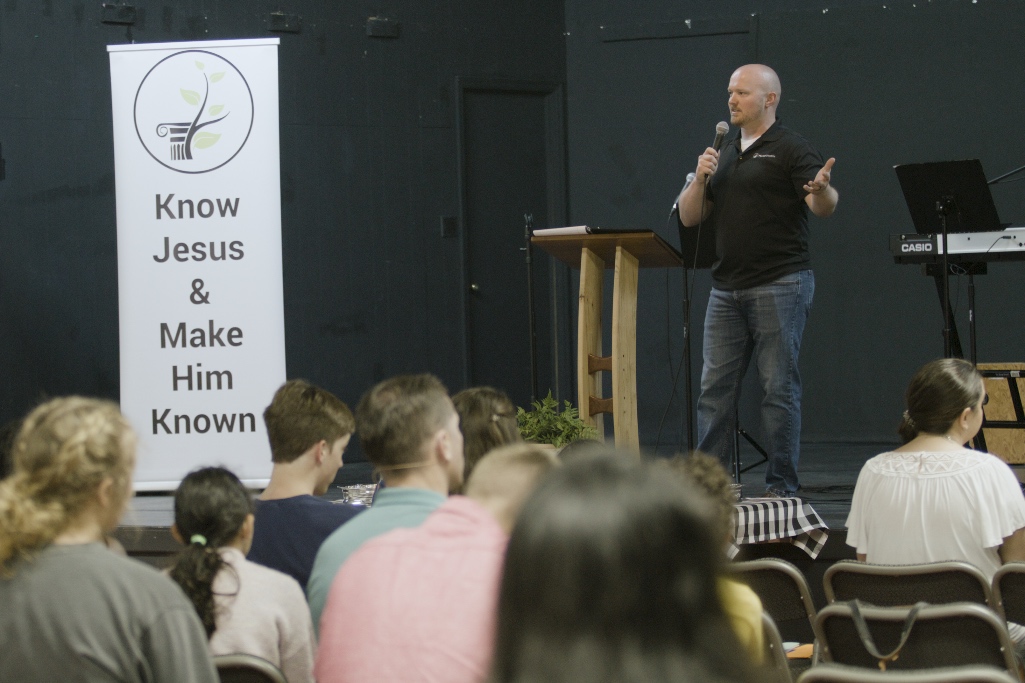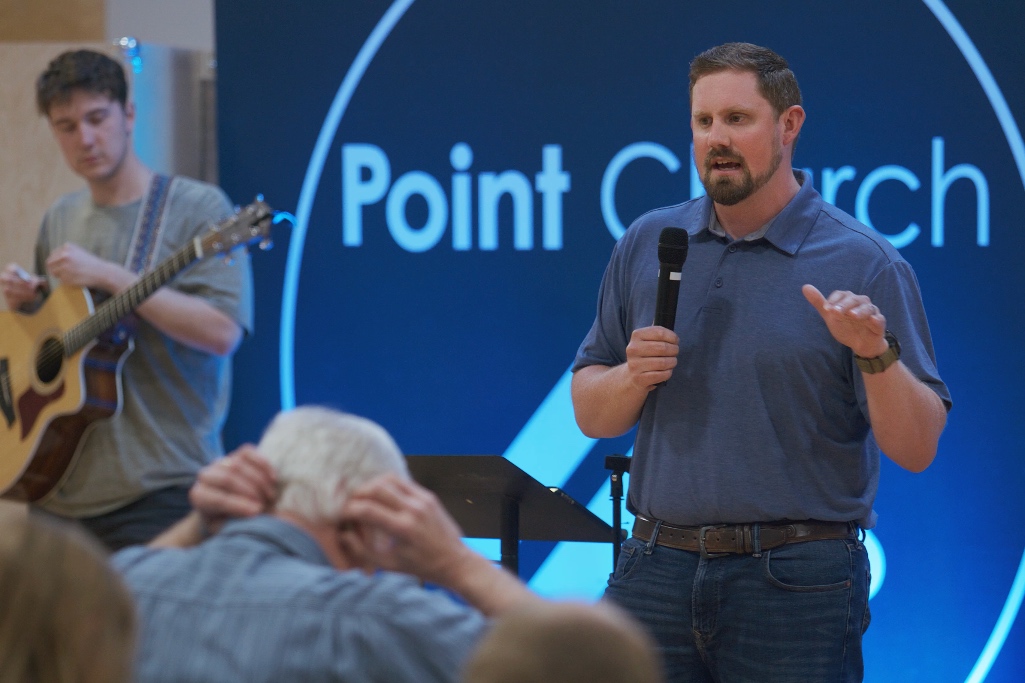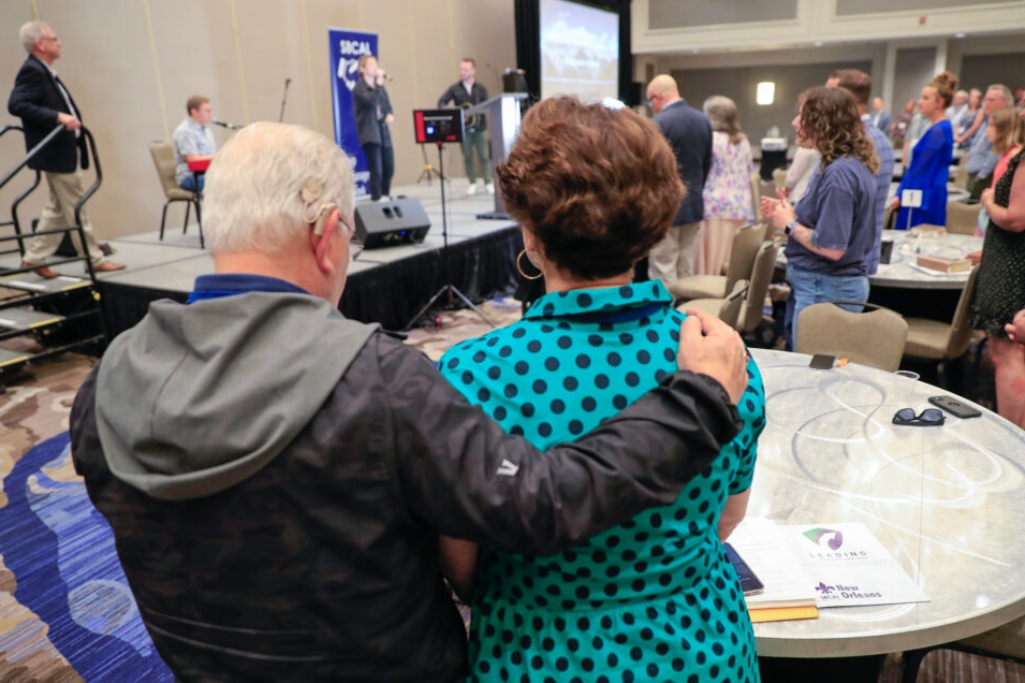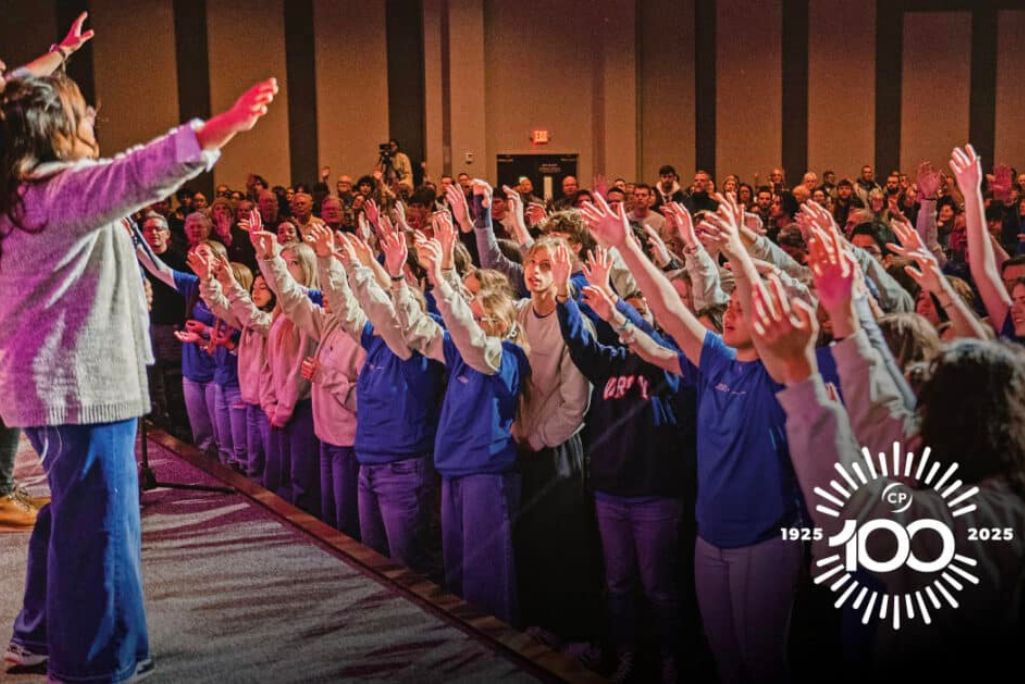
Joshua James Brown planted Pillar Church of Topsail following a 20-year career in the U.S. Marine Corps.
When Joshua James Brown concluded his 20-year career in the U.S. Marine Corps, he entered into a new assignment.
Instead of serving as an active member of the armed forces, he and his family planted Pillar Church of Topsail with a clear call to reach the North Carolina military community with the gospel.
Brown knows firsthand the unique challenges military personnel face in finding a gospel-centered church.
“(My family) moved from base to base, and each time, we would have to find a new church,” Brown said. “It’s hard, every time. It’s a vulnerable time.”
There are approximately 1.4 million active-duty military personnel who serve across the different branches of the U.S. Armed Forces. North Carolina, in particular, has the fourth-highest active-duty military population in the nation, with more than 99,000 personnel and their families stationed here. These men and women, along with their families, make sacrifices each day to ensure the safety and welfare of our nation.
But one aspect of military life often goes overlooked: finding a gospel-centered church that understands the demands and unique circumstances involved in the lives of troops.
Military communities are transient by nature. Assignments in a given location may last for years or mere months. When military personnel are reassigned, they leave behind much more than a military base – they leave behind the rhythms and community they established during their time on the base, including their church family.
The need for more churches
Some churches throughout North Carolina are trying to fill the gap between the transitional lifestyle that military families face and the desperate need for gospel-centered communities.
Point Church in Fayetteville is one of those churches. Located near Fort Liberty, previously known as Fort Bragg, the church is actively pursuing these military families to reach them with the gospel.
“(Military families have) a really difficult life as they serve our country,” said Corey Ickes, pastor of Point Church. “They need a church that will give them the gospel and the hope of the gospel, but their schedule and their cyclical life cycles in the military make church really difficult.”
Ickes has recognized the need to reach military families for years. His heart for more churches in military communities began when he was a child and saw his own father experience military life. Now, he is stepping into what he sees as his “missionary endeavor.”
“To be able to contextualize – to serve them and give them the gospel, and then, Lord willing, mobilize them as they’re sent by the army and the air force to other bases – is a driving factor of why we’re here,” Ickes said.
Members of Point Church recognize that despite the large military population in North Carolina, gospel-centered churches are absent in many of these communities.
“There are not a lot of Bible-believing churches … so there is a huge need for discipleship – especially in our military community,” said Vanessa Tramm, who serves as the kids ministry coordinator for Point Church.
While Point Church works to minister to the personnel near Fort Liberty, Pillar Church of Topsail serves the Sneads Ferry community – a small, unincorporated town located near Topsail as well as several military installations along New River. There are over 50,000 active and retired military personnel and families within a 5-mile radius of the church.

Military on mission
Pillar Church of Topsail and Point Church are examples of churches that are focusing on reaching and sending out multiplying disciples who will continue to reach North Carolina and the world with the gospel long after their military assignments end.
“Can you imagine if (military personnel) were trained to lead well, with the Holy Spirit inside of them, along with a passion for what church planting is, and then (they were) sent all over the world from this small village?” Brown said.
Reaching military communities with the gospel is important for N.C. Baptists, both because of the large military presence in the state and because military life is so transient – they really are always “on mission.”
For pastors such as Ickes and Brown, the support of N.C. Baptists is essential as these churches seek to bring gospel transformation to these military communities.
“We don’t exist without North Carolina Baptists,” Ickes said. “God has provided us relationships and connection through the state convention. It’s really because of the funding through the state convention and local church partners that we even exist today.”
Brown said N.C. Baptists offered resources to help his transition from the military to ministry.
“The Baptist state convention has been a huge help,” Brown said. “They were able to ease the transition for me between the military and full-time ministry. They were able to give us training and support … It’s been a beautiful partnership for reaching this area with the gospel.”
Gifts to the North Carolina Missions Offering (NCMO) support church planting efforts across the state, including within military communities.
“Because of the NCMO, we’re able to reach this community, reach this military area and disciple people as they go all over the globe,” Brown said.
(EDITOR’S NOTE – This article originally appeared in the September 2023 edition of the Biblical Recorder magazine.)


